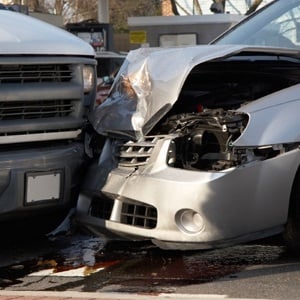
Although evidence is limited, factors recognised as increasing the risk of sleep-related car accidents include:
- Recent sleep loss or poor sleep patterns.
- An untreated or unrecognised sleep disorder, such as those which are associated with depression, sleep apnoea and narcolepsy.
- Certain driving patterns, including driving between midnight and 6 am, driving long distances and/or driving for a substantial number of hours without taking a break, or driving in the mid-afternoon hours (especially in the case of older people).
- The use of sedating medications, which can include anxiolytic hypnotics, certain antidepressants and antihistamines.
- The consumption of alcohol, which may cause sleepiness on its own or interact with medication.
These factors may have a cumulative effect, meaning that a combination of them could substantially increase the possibility of an accident.
Although no driver is immune to the effects of sleepiness, the following population groups are at an increased risk:
- People aged 16 to 29, especially males
- Shift workers and those who work at night or work long and/or irregular hours
- Ill people, such as those with depression, diabetes or certain chronic conditions
- People who use or abuse drugs and alcohol
The effects of alcohol on drivers
Being under the influence of alcohol can have many dangerous effects on drivers or operators of machinery. The specific effects can include:
- Judgement: One tends to be more likely to take risks and feel confident in one’s own driving abilities, leading to dangerous decisions.
- Impulsivity: The use of alcohol can lead to one becoming more impulsive and taking decisions without considering the possible implications as one would if not under the influence of alcohol. This could lead to dangerous decision making, such as deciding to drive while drunk, speeding, negligent and reckless driving.
- Concentration and attention: These may be dramatically reduced, leading to one not focussing on hazardous road obstacles.
- Coordination: The ability to estimate distance and space can be dramatically reduced. In addition, one’s hand-eye coordination can also be affected, leading to fumbling, or not properly stepping on the brake pedal.
- Reaction time: One’s reaction time can be dramatically reduced, leading to significant (and dangerous) increases in the time it takes to react to a certain situation.
- Vision changes: The pupils tend to dilate, which may increase sensitivity to the headlights of oncoming traffic. Tunnel vision may occur and the eyes may take longer to focus.
- Increased likelihood of falling asleep.
Staying under the limit
Driving under the influence of alcohol is dangerous. While it is advisable that one should rather not consume alcohol at all before driving, the legal blood alcohol limit in South Africa is 0.05g per 100ml of blood.
For a person weighing 70kg this can be reached by consuming the following:
- Two glasses of wine, or
- Two tots of hard liquor, or
- Two cans of beer.
It is important to note, however, that one should not rely on the above, as one’s actual blood alcohol level can be higher than expected and is influenced by many factors, including the type of alcoholic beverage, time of one’s last meal, the speed at which one drinks, one’s age, sex, fitness level, type of build, the use of medication, and illnesses.
This means that one person’s blood alcohol levels could be higher than another person’s even after consuming the same volume of alcohol.
Remember also that alcohol takes time to be removed from the bloodstream and body. For example, depending on the circumstances, people who are under the influence at midnight, could still be over the legal limit the next morning.
(Information supplied by Medi-Clinic)
Visit our Travel Health Centre for more information.
November 2005




 Publications
Publications
 Partners
Partners














